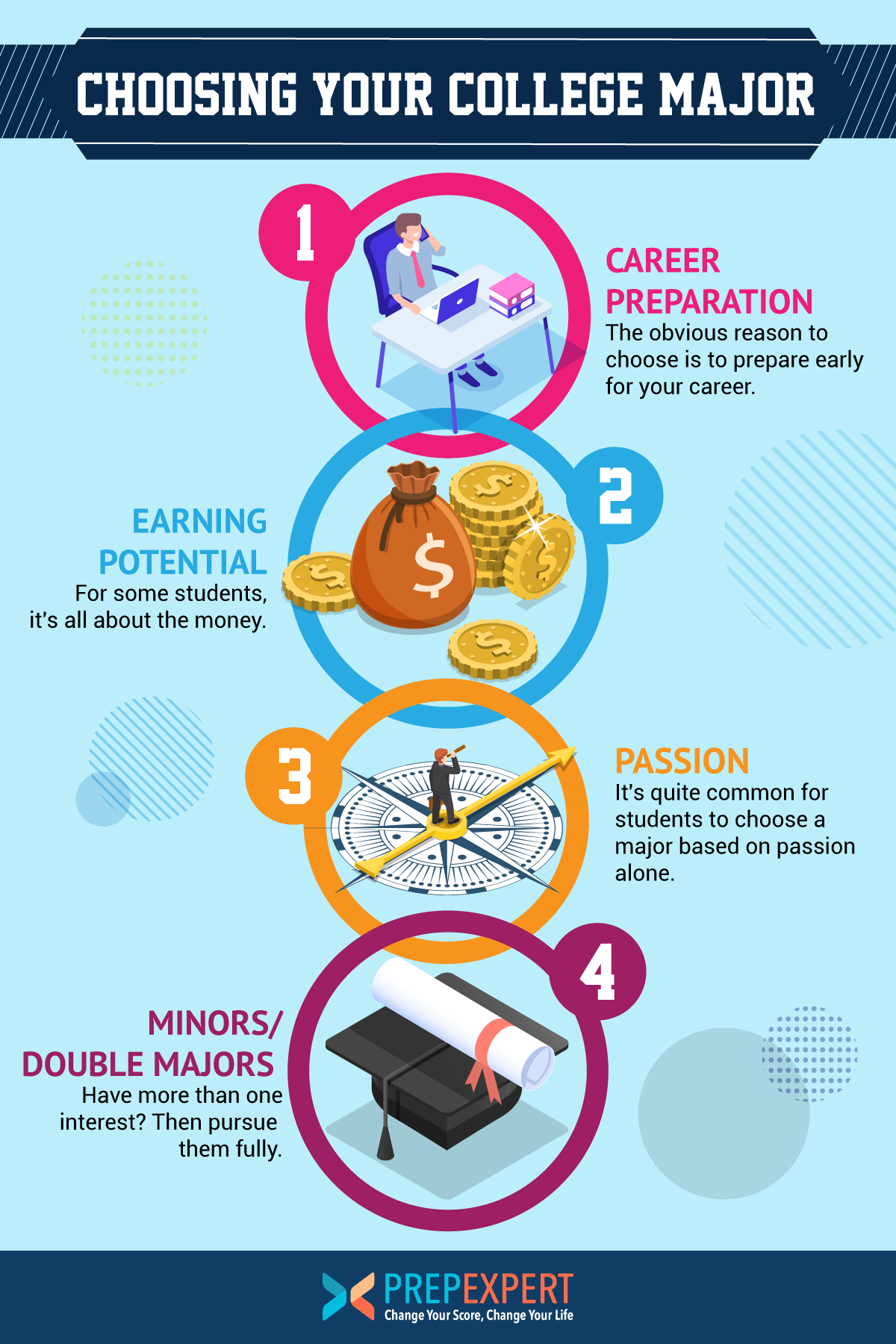Choosing Your College Major
Choosing your college major causes unnecessary stress when it doesn’t need to do so. There are a few major factors you need to consider before making that final decision, but once done, the decision is easy.
Consider these factors when finally choosing your college major.
Learn how to prepare for standardized tests with our year-round SAT prep and ACT prep courses today.
Career Preparation
The obvious reason to choose is to prepare early for your career.
If you’re someone who feels pretty set in your future career path, then think of your major as a formality to move forward. Maybe you’re someone who’s interested in engineering or business?
If so, then declaring that major early isn’t a bad idea. However, before doing so, take the following steps to be sure:
- Take a couple of relevant classes
- Check out class descriptions for advanced courses
- Find and talk to current students pursuing it
Why? Because you need to make sure that you’re prepared and enthusiastic to tackle the work necessary to pursue said career.
Earning Potential
For some students, it’s all about the money.
Choosing your major based on earning potential is common and fair. College is expensive, and if you’re taking out loans, then it’s reasonable to put that money into a career that pays said loans off easily.
Majors that often command the highest salaries include:
- Engineering
- Computer Science
- Physics
- Statistics
- Actuarial Mathematics
- Economics
However, keep in mind that these majors bring plenty of stress too. Think about the importance of work-life balance before making the final commitment.
Passion
It’s quite common for students to choose a major based on passion alone.
If you’re in love with what you’re studying, then your engagement with classes and subject matter will increase tremendously. That passion instantly translates to stronger grades and building relationships with other people in that field.
Those relationships can then help build your career after graduation too. Many liberal arts majors entrance students to take them, but, in return, they provide critical thinking and writing skills that are highly adaptable to different career paths. Don’t discount following your passions if you are one hundred percent committed to them.
Minors/Double Majors
Have more than one interest? Then pursue them fully.
If you’re interested in multiple career/academic paths, then consider pursuing a minor too. Many undergraduates will choose a minor because it’s academically similar to their major but require fewer classes to fulfill the requirements.
If you’re looking to increase your value to employers, then graduating with a major and complementary minor helps communicate your willingness to comprehensively pursue a career path.
For example, if you’re looking to become a marketing professional, then having a major in marketing and minor in graphic design is helpful. Other students though will pursue two full-time majors, often in entirely different fields.
They are eager to learn but remember that if the majors aren’t complimentary, then you will have to take twice as many classes and reduce opportunities to explore other paths.
Changing Majors
Don’t worry about getting stuck in one major.
It’s common to change your major at least once; students enter college with preconceived notions, and after taking different electives, can end up pursuing something else entirely.
Don’t feel like you have to commit to a major during your first semester. Remember though, every major has prerequisites to take, so use your first couple of semesters to explore different avenues, and figure out those paths.
If you change majors too late in your college career, it’s probable that you’ll have to start from scratch.
For more test strategy, college admissions, and scholarship application tips sign up for our FREE class happening right now!
Choosing Your College Major FAQ
What’s the first thing I should consider when picking a major?
Career Preparation. The obvious reason to choose is to prepare early for your career. If you’re someone who feels pretty set in your future career path, then think of your major as a formality to move forward.
What about earning potential?
For some students, it’s all about the money. Choosing your major based on earning potential is common and fair. College is expensive, and if you’re taking out loans, then it’s reasonable to put that money into a career that pays said loans off easily.
Should I let passion dictate what my major is?
It’s quite common for students to choose a major based on passion alone. If you’re in love with what you’re studying, then your engagement with classes and subject matter will increase tremendously. That passion instantly translates to stronger grades and building relationships with other people in that field. Those relationships can then help build your career after graduation too.
Should I also declare a minor?
Many undergraduates will choose a minor because it’s academically similar to their major but require fewer classes to fulfill the requirements. If you’re looking to increase your value to employers, then graduating with a major and complementary minor helps communicate your willingness to comprehensively pursue a career path.
